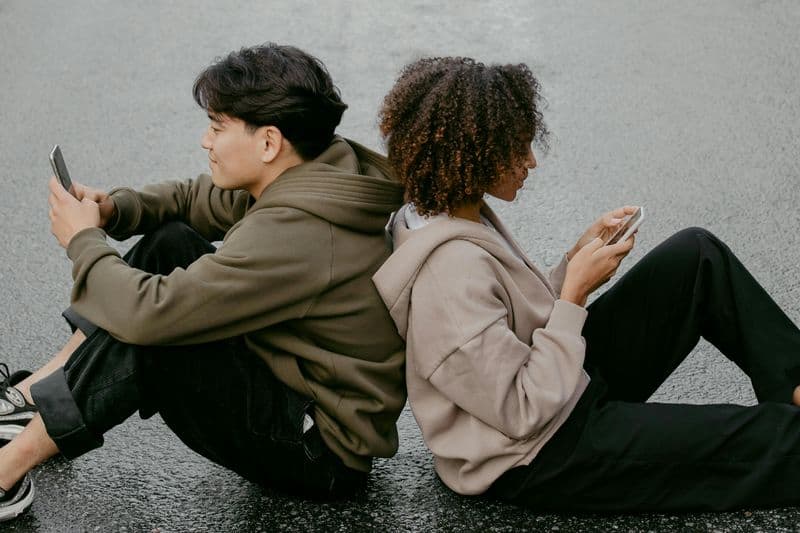Have you ever felt alone despite being with someone? That empty feeling when you’re sitting next to your partner but still feel miles apart is more common than you think.
Feeling lonely in a relationship happens to many people and can be really confusing. Understanding why this happens is the first step to fixing it and feeling connected again.
1. Your Emotional Needs Go Unmet
When your partner doesn’t understand what makes you feel loved, a huge gap forms between you. Maybe you need words of affirmation while they show love through actions, creating a disconnect that leaves you feeling empty.
This mismatch often happens silently. You might wait for them to figure out what you need without clearly expressing it yourself. Over time, this unexpressed yearning builds invisible walls.
The heart craves specific forms of connection – meaningful conversations, physical touch, or quality time. Without these personal essentials, even the most committed relationship can feel like a lonely island.
2. Poor Communication Creates Distance
Surface-level chats about schedules and chores might keep your household running, but they don’t nurture your bond. Real connection requires sharing thoughts, dreams, and vulnerabilities – the stuff that makes us human.
Many couples fall into communication habits that actually push them apart. Interrupting, dismissing feelings, or changing the subject when things get deep are subtle ways we avoid true intimacy.
The silence between words often speaks louder than what’s actually said. When meaningful exchanges disappear, that lonely feeling creeps in, even when you’re never physically alone.
3. Different Life Priorities Pull You Apart
Remember when you both wanted the same things? Sometimes partners grow in different directions. One might focus on career while the other prioritizes family or personal growth, creating separate life paths.
These shifting goals aren’t just about practical decisions – they reflect deeper values and dreams. When your vision for life no longer aligns with your partner’s, a fundamental disconnect develops.
Walking side by side but heading toward different destinations creates a unique kind of loneliness. You share a home but not a direction, making the relationship feel like a temporary stopping point rather than a shared journey.
4. Buried Conflicts Create Invisible Barriers
That fight you never fully resolved? It didn’t just disappear. Unaddressed conflicts create invisible walls between partners, blocking genuine connection even during happy moments.
Many couples adopt a peace-at-any-price approach, sweeping uncomfortable topics under the rug. The problem? Those buried issues grow roots, spreading tension throughout the relationship.
The human heart knows when something remains unsettled. Your mind might move on, but your emotional system keeps track of these unresolved hurts, creating a background feeling of disconnection that’s hard to name but impossible to ignore.
5. Technology Steals Your Connection Time
Phones, tablets, and laptops have become uninvited guests in our relationships. That familiar scene – two people sharing space but lost in separate digital worlds – has become the new normal for many couples.
Technology creates a false sense of togetherness. You’re physically present but mentally elsewhere, scrolling through other people’s lives instead of participating in your own.
The average American checks their phone 96 times daily – that’s 96 potential moments of connection lost. These small disconnections add up, gradually replacing intimate moments with shallow digital interactions that leave both partners feeling strangely alone together.
6. Intimacy Has Faded Away
Physical closeness isn’t just about sex – it’s about the full spectrum of touch that reminds us we’re not alone. When hugs, hand-holding, and casual affection disappear, a primal part of us feels the absence intensely.
Intimacy creates chemical reactions in our bodies that foster bonding. Without these regular connection points, partners can feel like roommates sharing space rather than lovers sharing lives.
The decline often happens gradually. Small rejections, busy schedules, and unspoken resentments create a pattern of physical distance that becomes the new normal, leaving both people touch-starved in their own relationship.
7. Trust Has Been Damaged
Trust isn’t just about fidelity – it’s the foundation that makes vulnerability possible. When trust fractures, whether from a major betrayal or a series of small broken promises, the protective walls go up.
A relationship without trust creates a particular kind of loneliness. You’re physically present but emotionally guarded, unable to fully share yourself for fear of being hurt again.
The human heart needs safety to open completely. Without it, we hold back parts of ourselves, creating a partial connection that never quite satisfies our need for true intimacy. This half-in, half-out existence leaves both partners feeling strangely isolated despite their commitment.
8. Outside Stressors Have Invaded Your Space
Life’s pressures don’t stay neatly outside your relationship. Work demands, family problems, health concerns, and financial worries can consume the emotional energy needed for connection.
Stress changes how we interact with loved ones. When overwhelmed, we often become less patient, less present, and less able to tune into our partner’s needs. The person beside you might physically be there but mentally carrying burdens too heavy to set down.
External pressures create a unique form of relationship loneliness. You’re both fighting battles that leave little capacity for nurturing your bond, creating a temporary but painful disconnection that can become permanent if not addressed.
9. You’ve Lost Your Individual Identity
Surprising but true: sometimes we feel lonely because we’ve lost ourselves in the relationship. Becoming too dependent on a partner for happiness, purpose, and fulfillment creates an unhealthy dynamic that actually increases loneliness.
Human connection requires two whole people coming together, not two halves seeking completion. When you abandon personal interests, friendships, and goals, you have less of yourself to bring to the relationship.
The most fulfilling partnerships thrive on healthy separateness. Without it, partners can feel suffocated or empty, creating that paradoxical feeling of being lonely despite never being alone.
10. You’ve Stopped Growing Together
Remember how you used to share new experiences and learn together? Relationships thrive on shared discovery. When couples stop exploring life together, a subtle staleness creeps in that can feel like profound loneliness.
Growth creates energy and connection. Trying new activities, having fresh conversations, or working toward shared goals keeps the relationship dynamic and engaging. Without these renewal points, partners can feel stuck in a loop of sameness.
Humans naturally crave both security and novelty. When a relationship provides stability but lacks the excitement of growth and discovery, that restless feeling of isolation can emerge even in otherwise loving partnerships.











